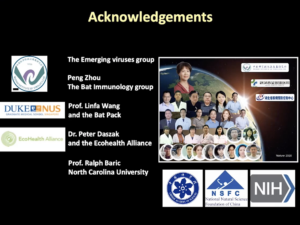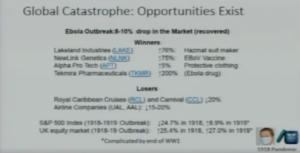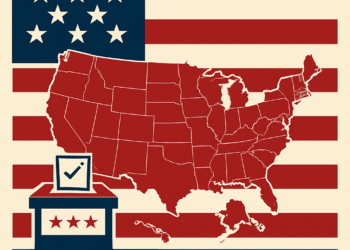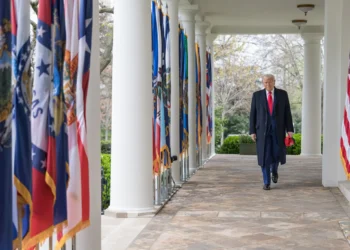Anthony Fauci awarded Dr. Ralph Baric – a "longtime collaborator" of the Wuhan Institute of Virology and conductor of controversial gain-of-function research – a $65 million grant to develop drugs against pandemics.
Baric, who has been involved in studies manipulating bat coronaviruses with striking similarities to COVID-19 alongside the Wuhan Institute of Virology, has also been caught advising people how to "make money" during pandemics.
In May 2022, the National Institute of Allergy and Infectious Diseases (NIAID), which is led by Fauci, awarded the University of North Carolina (UNC) Gillings School of Global Public Health a $65 million grant to establish an Antiviral Drug Discovery (AViDD) Center to "develop oral antivirals that can combat pandemic-level viruses like COVID-19."
Partners on the venture, which expands upon UNC's pre-existing Rapidly Emerging Antiviral Drug Development Institute (READDI) and counts Baric as it's Program Director, include pharmaceutical companies. Companies that have been announced as members of the consortium include Janssen Pharmaceuticals, Takeda, Chimerix Inc. and Pardes Biosciences.
"Building on generous support and vision provided by the North Carolina legislature, the Governor's office and UNC, we established a collaborative coalition of scientific leaders to develop antiviral drugs against pandemic virus threats of the 21st century," stated Baric.
"To achieve these goals, our NIH sponsored READDI-AViDD Center is an international consortium that includes academic institutions, pharmaceutical companies and affiliated entities across five nations.
The consortium is working to develop treatments for human coronavirus, flavivirus, alphavirus and filovirus infections."
Fauci's decision to tap Baric to run the READDI-AViDD network follows considerable controversy over the researcher's advocacy of gain of function research, which involves manipulating viruses to become deadlier to humans, and his "long-time" collaboration with the Wuhan Institute of Virology.
Baric was singled out by Senator Rand Paul during his questioning of Anthony Fauci, where he explained: "For years, Dr. Ralph Baric, a virologist in the U.S., has been collaborating with Dr. Shi Zhengli of the Wuhan Virology Institute, sharing his discoveries about how to create super viruses. This gain-of-function research has been funded by the NIH."
Speaking on a podcast about the collaboration with the Chinese Communist Party-run lab, Baric revealed:
"The main goal of that grant was to try to find the bookend of other SARS-like coronaviruses that can initiate infection of human cells and use human entry components â€" human receptors to get into cells. And so we had hypothesized that there were SARS viruses out there that were 20, 25, 30 percent different but could still use the human receptors to get in."
"That was the goal of the grant, and we were running around looking in caves and isolating viruses from bats," Baric added about his collaboration with China's "bat lady."
"Bat Lady" Shi Zhengli has also described the UNC researcher as one of her "longtime collaborators."

Baric also spoke at a Chinese Academy of Sciences conference in 2015 convened to explore gain-of-function research with researchers working for China's People's Liberation Army (PLA).
Unearthed footage of Baric has also shown the Fauci-funded researcher lecturing about how to "make money in the next pandemic" in 2018. Speaking over a slide labeled "Global Catastrophe: Opportunities Exist," Baric details stocks and industries that surged during the Ebola outbreak:
"I wanted to give you good news. There are winners out there, right? So if you ever want to be prepared and make money in the next pandemic, if that's what you want to do, buy stock in Hazmat suit makers and protective clothing or companies that make antiviral drugs for that particular pandemic."
"Some products do well. 1918 including masks, same thing today," he advises in the 2018 speech.

"Investment in antiviral drug discovery through open science is the best way to ensure that the world is prepared for the next pandemic," said Tim Willson, PhD, co-director and professor at the UNC Eshelman School of Pharmacy. "READDI-AC will leverage open science to support the development of antiviral drugs that are affordable and available to all."




